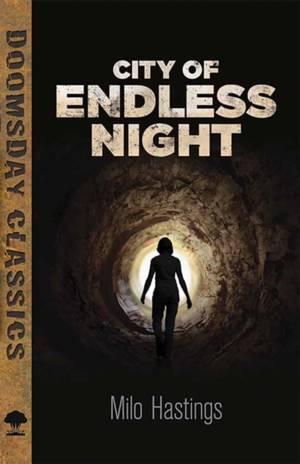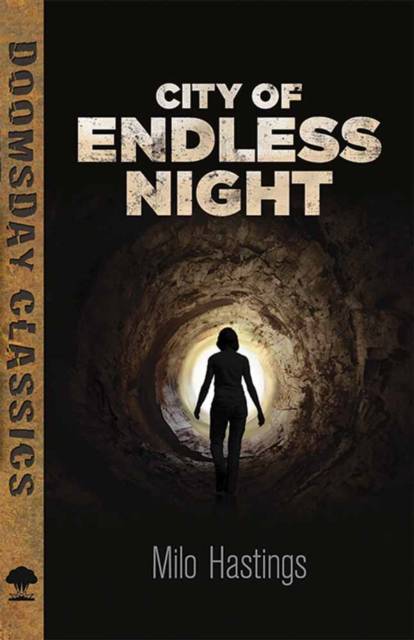
- Afhalen na 1 uur in een winkel met voorraad
- Gratis thuislevering in België vanaf € 30
- Ruim aanbod met 7 miljoen producten
- Afhalen na 1 uur in een winkel met voorraad
- Gratis thuislevering in België vanaf € 30
- Ruim aanbod met 7 miljoen producten
Zoeken
€ 14,95
+ 29 punten
Uitvoering
Omschrijving
In Berlin of 2041, millions of people live underground. The city is in a state of perpetual war with the rest of the world, its besieged population locked beneath an impenetrable dome. Strictly rationed food is available only to workers, Christianity is banned, and breeding is governed by eugenics. But a ray of hope descends into the underworld when a young American chemist manages to penetrate the subterranean society in an attempt to rally the demoralized citizens and spark a revolution.
Written toward the end of World War I and published in 1919, this gripping dystopian novel offers remarkably prescient views of Germany's resurgence and the rise of fascism. City of Endless Night's many anticipations of Nazi ideology include rigid governmental control of the press, promotion of eugenics, and the embrace of the concept of a master race. A landmark of science fiction, this pioneering novel was the precursor of Fritz Lang's Metropolis, Aldous Huxley's Brave New World, and other visionary tales.
Written toward the end of World War I and published in 1919, this gripping dystopian novel offers remarkably prescient views of Germany's resurgence and the rise of fascism. City of Endless Night's many anticipations of Nazi ideology include rigid governmental control of the press, promotion of eugenics, and the embrace of the concept of a master race. A landmark of science fiction, this pioneering novel was the precursor of Fritz Lang's Metropolis, Aldous Huxley's Brave New World, and other visionary tales.
Specificaties
Betrokkenen
- Auteur(s):
- Uitgeverij:
Inhoud
- Aantal bladzijden:
- 352
- Taal:
- Engels
- Reeks:
Eigenschappen
- Productcode (EAN):
- 9780486810621
- Verschijningsdatum:
- 18/01/2017
- Uitvoering:
- Paperback
- Formaat:
- Trade paperback (VS)
- Afmetingen:
- 137 mm x 216 mm
- Gewicht:
- 408 g

Alleen bij Standaard Boekhandel
+ 29 punten op je klantenkaart van Standaard Boekhandel
Beoordelingen
We publiceren alleen reviews die voldoen aan de voorwaarden voor reviews. Bekijk onze voorwaarden voor reviews.











